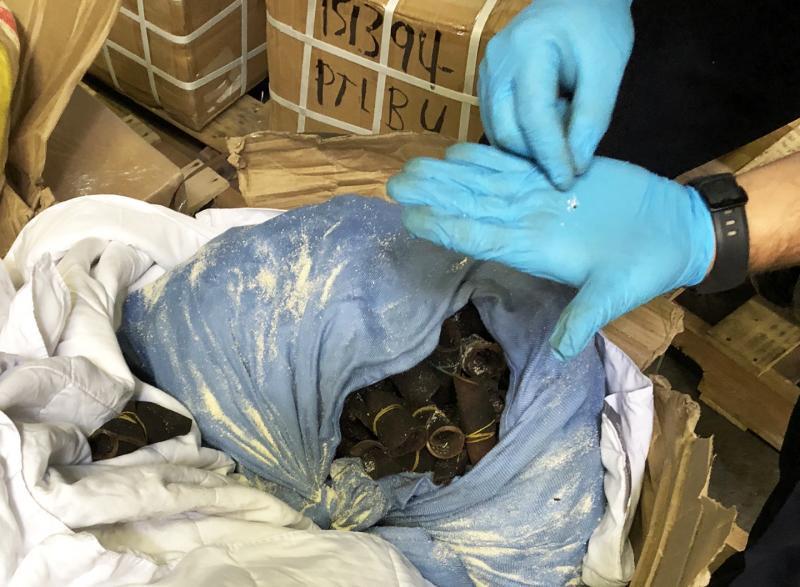Baltimore CBP agriculture specialists intercept cow skins from Nigeria and Federal noxious weed seeds from Japan
Aug 06, 2020U.S. Customs and Border Protection agriculture specialists are charged with the challenging task of safeguarding our nation’s agricultural resources by examining international trade and travelers’ baggage every day for invasive insects, federal noxious weeds, and plant and animal diseases. Two recent interceptions highlight the breadth of this responsibility.
CBP agriculture specialists in Baltimore intercepted highly invasive cogon grass weed seeds on 53 pieces of farm machinery and 330 pounds of prohibited cow skins.
CBP encountered the cogon grass seeds while inspecting heavy farm machinery June 30 and July 6. According to the U.S. Department of Agriculture, cogon grass as one of the world’s 10 worst weeds and it is identified as a federal noxious weed under the Plant Protection Act in the United States. It is highly tolerant of difficult ecological conditions, and it aggressively displaces native species of grass, crop pants and some trees.
CBP ordered importers to completely clean the vehicles and incinerate the weed seeds. The machinery was destined to addresses in Georgia, Illinois, and Tennessee.
In July 9, CBP agriculture specialists discovered the cow skins while inspecting a large shipment from Nigeria. The shipment was manifested as melon souvenir and was destined to an address in Prince George’s County, Maryland. Cow skins potentially carry severe animal diseases, such as Bovine Spongiform Encephalopathy, Brucellosis and Foot and Mouth Disease, that could threaten our nation’s cattle and livestock industries.

CBP ordered importers to incinerate the cow skins.
“These interceptions illustrate the very real threat to our agricultural and natural resources that Customs and Border Protection agriculture specialists combat every day,” said Casey Durst, CBP’s Director of Field Operations in Baltimore. “CBP agriculture specialists face a very complex and challenging task to protect our nation’s agricultural and economic security and they meet that challenge with extraordinary commitment and vigilance.”
CBP agriculture specialists have extensive training and experience in the biological sciences and agricultural inspection, inspect tens of thousands of international air passengers, and air and sea cargoes nationally being imported to the United States.
During a typical day last year, CBP agriculture specialists across the nation seized 4,695 prohibited plant, meat, animal byproduct, and soil, and intercepted 314 insect pests at U.S. ports of entry. See what else CBP achieved on a typical day during 2019.
Similar Stories

Total volume surges with second-busiest September ever at Port of NY and NJ
View Article
Gateway Terminal in Connecticut to receive $34M federal investment in electric and zero-emissions equipment
View Article
Waterfront work stoppages simultaneously hit British Columbia ports and Montreal
View Article
New Indiana bridge to double ocean cargo capacity for Lake Michigan port
View Article
Utah Inland Port Authority finalizes statewide logistics strategy to elevate Utah as a national leader in logistics infrastructure
View ArticleEPA’s $322M boost for Port of Oakland’s green future
The Center for Transportation and the Environment (CTE) joins the Port of Oakland in celebrating a $322 million grant from the EPA’s Clean Ports Program to drive a large-scale transition…
View ArticleGet the most up-to-date trending news!
SubscribeIndustry updates and weekly newsletter direct to your inbox!





